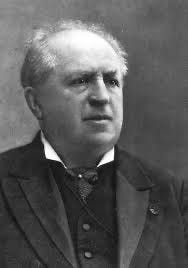One reason the Religious Studies Department at ASU gives for my inability to use the phrase “Biblical Worldview” is that it is overly simplistic.
The philosopher who coined that term was Abraham Kuyper. He discussed the “world and life view” of the philosophies of his day. He was a professor, founder of a university, and prime minister of Holland. Definitely not a person anyone has ever called “overly simplistic.”
What would it mean if there is no Biblical Worldview? Have the “experts” in Religious Studies at ASU hit upon something no one else has ever seen?
A “world and life view” is the collection of beliefs about reality and values that shape the way a person and community lives. Does the Bible contain any such beliefs?
Let’s say it doesn’t. Let’s agree with the RS Dept. The Bible contains no beliefs by which we can distinguish it from any other religion on earth. And not only that, to think there are such beliefs is simplistic.
Well then, they couldn’t object to using the Bible as the textbook for their gender studies classes. It contains no distinctive beliefs that are contrary to their infinite genders philosophy.
See, this is why we need experts like those in RS at ASU.





What I find most disturbing here, is that even if they think “biblical worldview” is too simplistic, they think it’s within their right to keep you from using it. I think my colleagues discussion of the Euthyphro dilemma in his classes is much too simplistic. I may try to persuade him, through argument, if this, but I would never try to stop him through some kind of power play.
A worldview is a conceptual organizing principle, applicable to all religions and philosophies. There are versions and variations within each basic category. We can speak of essential Christian beliefs down through the ages; we can state them philosophically as a worldview. We can emphasize that worldview is not exhaustive in its description. We have also creeds, confessions, and the whole Bible.